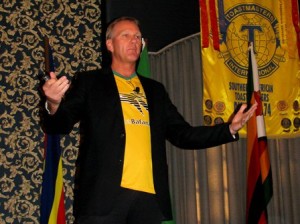Everyone Communicates, few Connect by John Maxwell
 Published by Thomas Nelson
Published by Thomas Nelson
***look below for a free copy – contest closed
Many of us have intentions to read more self-development books, but by the end of the work-day we are simply too tired, so we end up in front of the TV or reading a light novel.
This book is one of those that you can pick up at the end of the day. It is filled with stories and anecdotes drawn from his own experience and from others; all of which illustrate the points that he is trying to make. The story telling style makes it easy reading; yet still a book of substance. This is typical of what I have come to expect from his other books. At 250 pages it is not a long read, but you can always go back to it again and again.
The main premise of the book is that while we spend a huge amount of time communicating, we are not necessarily making the right effective connections that are crucial to effective communication and leadership.
The book is divided into two main sections; principles and practices. It is self explanatory, but he gives a few simple principles on making better and effective connections, and then shows how to implement them.
The book is aimed at anybody wishing to make better connections; and could be applied in both your personal or business life. He gives simple tips at the end of chapter, divided into three main areas, namely one-on one, a group or an audience.
For the public speakers out there; some great tips (and affirmation of some things you already know), for those of you in corporate business, some tips on working with colleagues, in teams at or in a group environment, such as at meetings. And one-on one communication is important to us all.
An unusual feature of the book is that John Maxwell posted the manuscript of the book on his blog www.johnmaxwellonleadership.com, and he received over 100,000 view over eleven weeks, resulting in over 70 quotes, stories and anecdotes from readers which resulted in over 100 revisions. Every contributor is acknowledged in the book.
I am a fan of John Maxwell, so it is difficult to be unbiased, but as a communicator and public speaker, this is a great book, and it is going to help you to become even better.
It is available from Amazon in hardback for $17.15. The folks at Thomas Nelson have kindly provided 5 free copies to readers. Leave you name in the comment section below, and I will randomly draw 5 names on 28 July who will each receive a copy.
Thanks to Thomas Nelson for the (signed) review copy.
 I have had my Amazon Kindle for about 18 months (6 months out of warranty), and a few weeks ago it started behaving strangely, in that whenever it went onto standby, it would crash.
I have had my Amazon Kindle for about 18 months (6 months out of warranty), and a few weeks ago it started behaving strangely, in that whenever it went onto standby, it would crash.



